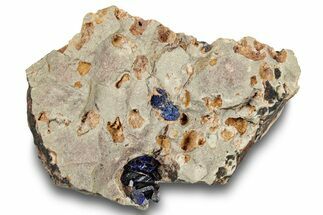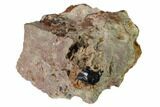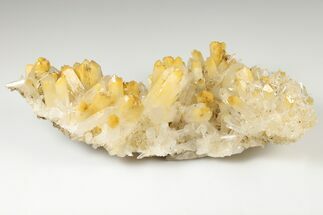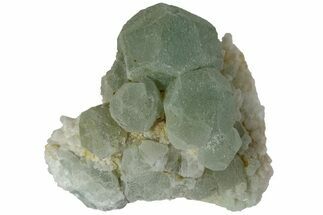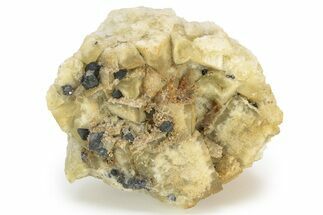This Specimen has been sold.
Azurite Crystal on Druzy Quartz - Morocco
This specimen contains a beautiful cluster of pristine azurite crystals sitting in a pocket of sparkling druzy quartz. This specimen was collected from morocco.
Azurite is a copper carbonate hydroxide mineral best known for its beautiful and vibrant blue appearance. Azurite typically forms in nodular formations with other colorful, copper-rich minerals. It is a secondary mineral that precipitated in pores, crevices, and caverns from water with high concentrations of carbon dioxide.
Azurite and malachite are known to form in union with each other since their chemical makeup is very similar. In fact, the presence of more or less water in the location of formation is enough to determine whether an abundance of malachite over azurite, or vise-versa, will accumulate.
Azurite and malachite are known to form in union with each other since their chemical makeup is very similar. In fact, the presence of more or less water in the location of formation is enough to determine whether an abundance of malachite over azurite, or vise-versa, will accumulate.
About Quartz
Quartz is the name given to silicon dioxide (SiO2) and is the second most abundant mineral in the Earth's crust. Quartz crystals generally grow in silica-rich environments--usually igneous rocks or hydrothermal environments like geothermal waters--at temperatures between 100°C and 450°C, and usually under very high pressure. In either case, crystals will precipitate as temperatures cool, just as ice gradually forms when water freezes. Quartz veins are formed when open fissures are filled with hot water during the closing stages of mountain formation: these veins can be hundreds of millions of years old.
Quartz is the name given to silicon dioxide (SiO2) and is the second most abundant mineral in the Earth's crust. Quartz crystals generally grow in silica-rich environments--usually igneous rocks or hydrothermal environments like geothermal waters--at temperatures between 100°C and 450°C, and usually under very high pressure. In either case, crystals will precipitate as temperatures cool, just as ice gradually forms when water freezes. Quartz veins are formed when open fissures are filled with hot water during the closing stages of mountain formation: these veins can be hundreds of millions of years old.
 Reviews
Reviews
